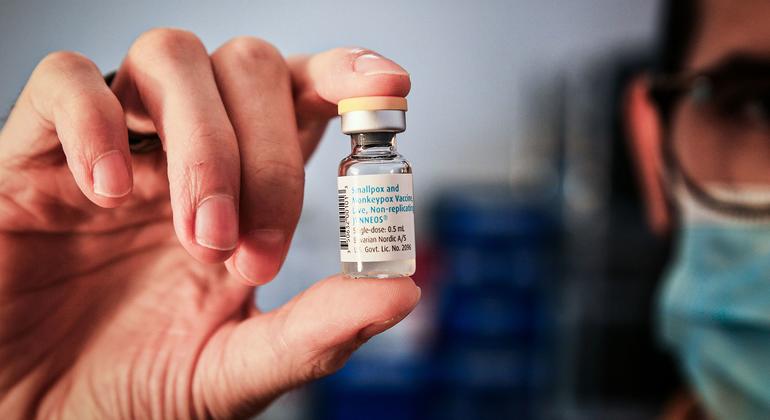Europe can beat mpox, must support Africa with vaccines: WHO

Briefing journalists in Geneva, Dr Hans Kluge, WHO The European regional director stressed that the risk from mpox to the general population is “low”.
He dismissed comparisons between the fast-spreading viral disease that the agency declared an international public health emergency last week.and COVID-19 pandemic, “regardless of whether it is mpox clade 1, which is behind the ongoing outbreak in east-central Africa, or mpox clade 2, which was behind the 2022 outbreak that initially impacted Europe and has continued to circulate in Europe since then.”
“We know how to control mpox – and in the European region – the steps needed to completely eliminate its transmissionDr. Kluge continued.
Transmission model
Current scientific knowledge about the virus suggests that it is primarily transmitted through skin-to-skin contact with mpox lesions, including during sex. The UN health agency’s response to questions about whether Europe would experience a COVID-like lockdown was clear “no”.
Speaking via video link from Copenhagen, Dr Kluge recalled that the 2022 mpox outbreak in Europe was brought under control “thanks to the direct involvement of the most affected community of men who have sex with men”.
He cited “behavioral change, non-discriminatory public health action and mpox vaccination” as factors for success in Europe in 2022. However, the region “has not reached the final mile” to stamp out the disease and Currently seeing about 100 new cases of clade 2 mpox each month.he said
Mutation detected
Last week, Sweden became the first country outside Africa to record a case of the clade 1 mpox variant at the centre of the latest outbreak, which has spread from the Democratic Republic of Congo (DRC) to neighbouring countries. The Swedish case involved a person who had travelled to an affected area in Africa.
Dr Kluge urged that the current state of alarm over group 1, which is considered more serious, gives European health authorities the opportunity to increase their focus on group 2 and eliminate it “once and for all”.

A sample was taken from a person with mpox disease.
Smallpox vaccine works
United Nations health agency representative specifically calls for European solidarity with Africa, especially on equitable access to vaccines.
WHO recommends the use of MVA-BN or LC16 or ACAM2000 vaccines when other vaccines are not available. These vaccines were originally developed to protect against smallpox, which is now eradicated.
WHO spokesman Tarik Jašarević said that the manufacturer of MVA-BN, Bavarian Nordic, “has the capacity to produce 10 million doses by the end of 2025 and can now supply up to two million doses this year.” As for LC16, a vaccine produced on behalf of the Japanese government, he stressed that there is a “significant” stockpile of this vaccine.
“Japan has been very generous in the past with grants,” he said, and is currently in talks with the DRC government.
DRC reported More than 15,600 cases of mpox this year and about 540 deaths.

Monkeypox lesions usually appear on the palms of the hands.
International response activated
Last week, WHO chief Tedros Adhanom Ghebreyesus triggered an “Emergency Use Listing” process for the mpox vaccine, designed to speed up access for low-income countries that have not yet issued their own regulatory approval.
This measure also helps UN health agency partners such as Gavi, the Vaccine Alliance and the United Nations Children’s Fund (UNICEF) to purchase vaccines for distribution.
Dr Kluge said the European Union (EU) had donated vaccines, which made him “optimistic”, but that generosity would be tested if the EU needed more vaccines.
WHO’s Jašarević said that while vaccines are essential, they are “just some of the tools”, along with contact tracing, close surveillance, public health measures and adequate clinical care for those who need it.
He mentioned that the positive legacy of the COVID-19 response has been improved laboratory capacity around the world, allowing for better detection of many different viruses.
Based on health lessons from recent pandemics, global coordination will be key to defeating mpox.We can and must solve the mpox problem together – across regions and continents“Do we choose to put systems in place to control and eliminate mpox globally? Or will we enter another cycle of panic and neglect?” Dr. Kluge stressed.
“How we respond now and in the years to come will be a key test for Europe and the world,” concludes Dr Kluge.




